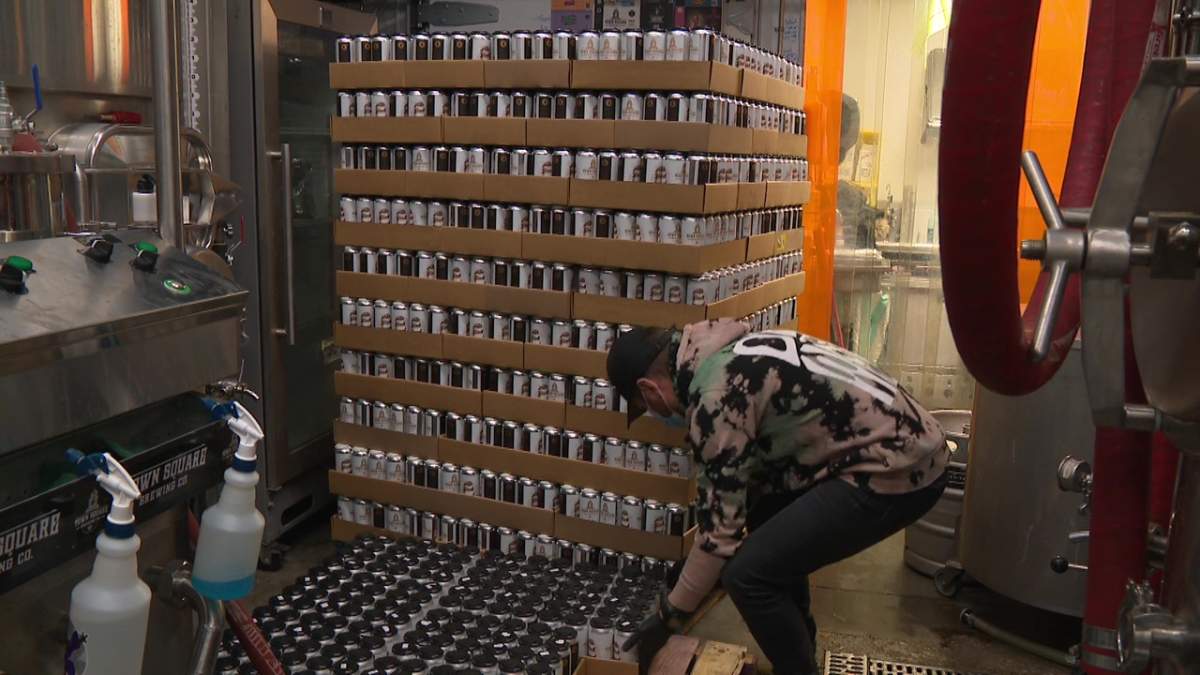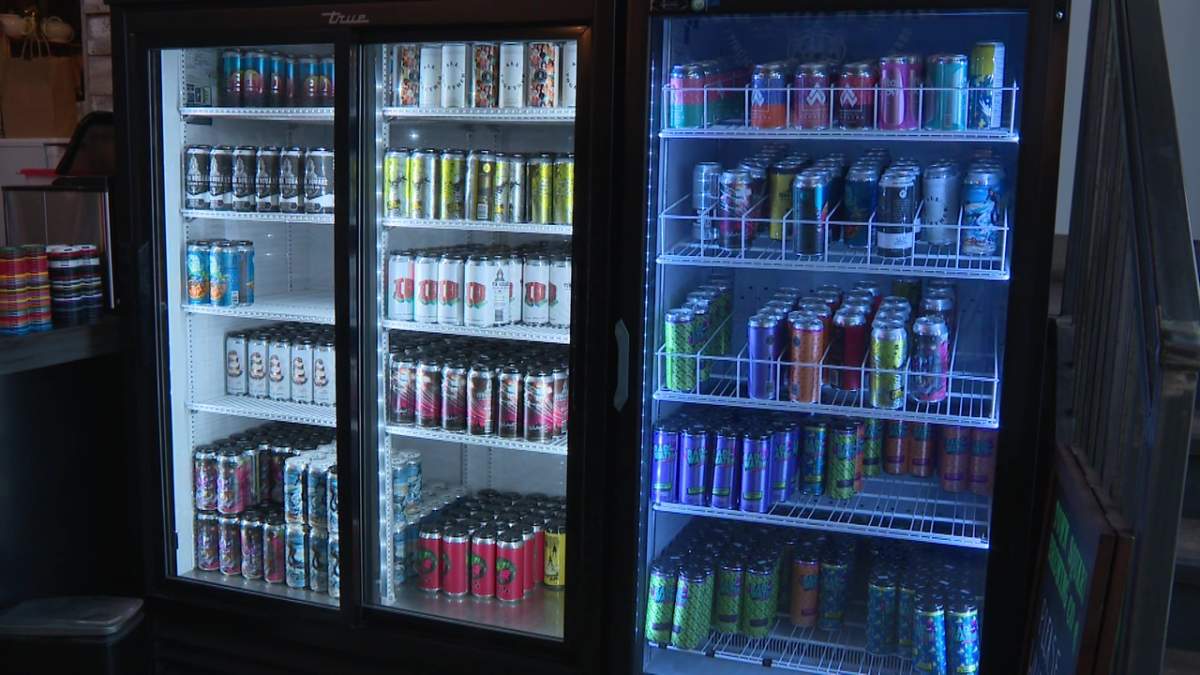When the pandemic first hit, Analog Brewing owners Adam Corsault and Bryan Launier didn’t know what to expect. As 2020 winds to a close, they still don’t know.

“It’s a weird year,” Launier said. “Very weird.
“The last nine months have been an adventure, that’s for sure,” Corsault said.
“We thought for sure this was going to be the year of Analog. It became the year of the audible.”
Behind Cosault, as he speaks, is a sign of those frequent business pivots.
Staff hurriedly can beer, which was never part of the plan. Analog wants to get their product into more restaurants and bars. Earlier this year, the brewery decided to make four small batches of experimental brews that would be served in restaurants.
Then COVID-19 cases spiked and restaurant traffic disappeared. Analog’s clients could no longer sell the beer and they cancelled their orders for kegs.
One of Analog’s many recent audibles followed.
Instead of selling this special beer in kegs, they canned it and sold limited-edition gift sets. The beer sold out quickly, which was a relief to Corsault and Launiuer.
“We’re finding our niche and finding ways to adapt and make it work,” Launier said.
Change has been painful, at times.
Before the pandemic, Analog’s tasting room brought in a quarter of the company’s revenue. COVID-19 forced that room to close and all the revenue disappeared.
The good news — people still want their beer. Demand has been strong, just not as profitable as expected.
“There were about four months in the summer where we were running as we anticipated we would be,” Corsault said. “The only difference was every drop went into cans.”

Get daily National news
READ MORE: Capitalizing on Alberta’s craft beer boom: marketing, branding and tourism in 2020
Launier explained why that’s a problem.
“Cans cost a lot. Labels cost a lot. So, while we’re selling a lot, we’re not making a lot of money.”
The owners aren’t complaining. They’re managing and are relieved they have not had to lay off any staff.
At Town Square Brewing, Brandon Boutin describes a similarly weird year.
“The pandemic, for us, has been quite a roller-coaster.”
Before the pandemic, half of the brewery’s revenue came from selling its beer to restaurants and liquor stores. The other half was from its on-site restaurant.
Provincial restrictions forced the restaurant to close and before that, the province required reduced capacity. Traffic was minimal and restaurant revenue all but disappeared.
It seemed like a good time to expand.
READ MORE: Tapping into the potential of women in Alberta’s craft beer industry
“We’re moving three tanks into the front end of the building here and we’ve had three tanks that we pre-ordered in July that just arrived,” Boutin said.
Town Square is doubling the amount of beer it will produce. The pandemic, Boutin feels, has played a part in the expansion.
He feels people have been searching for new experiences. They can’t go places so they’re trying new things. Craft beer is one of those things.
“We’ve seen a lot more people picking up the craft beer and enjoying it. That’s where it has helped us a lot,” Boutin said.
“It’s more of a prayer that has been answered.
“We’ve been trying to push into the Alberta market for a while, trying to get people to be adventurous.”
The strange year for Alberta brewers is mirrored in international consumption figures.
READ MORE: ‘Still room’ left in Alberta’s booming brewing and distilling industry: brewery founder
The IWSR Drinks Market Analysis analyzed beverage industry trends in 19 countries. The group found restaurant and bar closures and gathering limitations will lead to an anticipated eight per cent reduction in overall liquor consumption this year. The IWSR doesn’t expect a recovery to pre-pandemic levels until 2024.
Sectors of the industry catering to consumers who want a take-home product will likely fare better. The ‘ready-to-drink’ category is expected to enjoy a 43 per cent increase in sales in 2020.
Local brewers say they want to be ready to sell wherever they can.
However, they’re eagerly awaiting the end of the pandemic. Bars and restaurants will always be a brewery’s financial bread and butter.
Analog’s Bryan Launier says he has a post-pandemic plan. He’s thought about it a lot these last nine months.
“We’re going to open the taproom and see our friends that we haven’t seen in ages and I’m going to hug the heck out of them.”




















Comments
Want to discuss? Please read our Commenting Policy first.